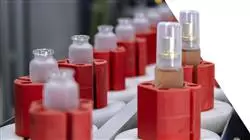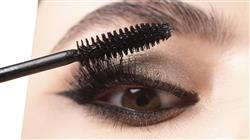University certificate
The world's largest faculty of medicine”
Introduction to the Program
With this program, the professional will delve into the medical, hygienic and quality Regulation of Cosmetic Products, allowing them to know the latest evaluative standards"

The production and mass production of cosmetics must be regulated and supervised to meet the standards required by the field of action. This process depends to a great extent on an exhaustive analysis and quality control that serves to prevent adverse effects in medicated patients. In this way, the regulatory process becomes one of the most important and demanding to endorse a product.
This is why the presence of medical professionals is necessary in the rigorous process for the distribution of a product, who from their knowledge and experience seek excellence in each product, and that this in turn works under high quality standards. To this extent, the Postgraduate diploma in Regulation of Cosmetic Products seeks, from its content, teaching staff and study material, to update the knowledge and study material, to update the knowledge of medical professionals so that they can identify, analyze and decide which cosmetics are and are not useful to treat skin conditions and diseases.
For this reason, TECH is launching this program in order to guide the physician through the informative path of updating and regulating cosmetic products. In addition, the program is an avant-garde, intensive and highly demanding educational program. The specialist will be able to delve into the regulatory processes that will allow themr to identify viable and non-viable products for the different types of different types of treatment.
This innovative program designed by TECH has a first class theoretical and practical content, specifically selected to bring out the highest potential of its graduates. To do this, the student can access the virtual campus whenever they want, meaning you can also download all the content of the program to study it whenever you want to.
With this program, you will be able to update your knowledge in the relevant regulations of the elaboration of cosmetic products"
This Postgraduate diploma in Regulation of Cosmetic Products contains the most complete and up-to-date scientific program on the market. The most important features include:
- Practical cases presented by experts in Cosmetic Science and Technology
- The graphic, schematic, and practical contents with which they are created, provide scientific and practical information on the disciplines that are essential for professional practice
- Practical exercises where the self-assessment process can be carried out to improve learning
- Emphasis on innovative methodologies
- Theoretical lessons, questions to the expert, debate forums on controversial topics, and individual reflection assignments
- Content that is accessible from any fixed or portable device with an Internet connection
Access the content of the Virtual Campus to get up to date with the latest updates in the dermatological sector to identify the due process of cosmetic products and their regulation for medical use"
The program includes, in its teaching staff, professionals from the sector who bring to this program the experience of their work, in addition to recognized specialists from prestigious reference societies and universities.
The multimedia content, developed with the latest educational technology, will provide the professional with situated and contextual learning, i.e., a simulated environment that will provide immersive education programmed to learn in real situations.
This program is designed around Problem-Based Learning, whereby the professional must try to solve the different professional practice situations that arise during the academic year For this purpose, the student will be assisted by an innovative interactive video system created by renowned and experienced experts.
Find out what the current requirements are for the endorsement of cosmetics, identifying from your role as a doctor if they are viable for use of dermatological problems"

Identifies the best cosmetic products that can help the patient's dermatological treatment based on their quality"
Why study at TECH?
TECH is the world’s largest online university. With an impressive catalog of more than 14,000 university programs available in 11 languages, it is positioned as a leader in employability, with a 99% job placement rate. In addition, it relies on an enormous faculty of more than 6,000 professors of the highest international renown.

Study at the world's largest online university and guarantee your professional success. The future starts at TECH”
The world’s best online university according to FORBES
The prestigious Forbes magazine, specialized in business and finance, has highlighted TECH as “the world's best online university” This is what they have recently stated in an article in their digital edition in which they echo the success story of this institution, “thanks to the academic offer it provides, the selection of its teaching staff, and an innovative learning method aimed at educating the professionals of the future”
A revolutionary study method, a cutting-edge faculty and a practical focus: the key to TECH's success.
The most complete study plans on the university scene
TECH offers the most complete study plans on the university scene, with syllabuses that cover fundamental concepts and, at the same time, the main scientific advances in their specific scientific areas. In addition, these programs are continuously being updated to guarantee students the academic vanguard and the most in-demand professional skills. In this way, the university's qualifications provide its graduates with a significant advantage to propel their careers to success.
TECH offers the most comprehensive and intensive study plans on the current university scene.
A world-class teaching staff
TECH's teaching staff is made up of more than 6,000 professors with the highest international recognition. Professors, researchers and top executives of multinational companies, including Isaiah Covington, performance coach of the Boston Celtics; Magda Romanska, principal investigator at Harvard MetaLAB; Ignacio Wistumba, chairman of the department of translational molecular pathology at MD Anderson Cancer Center; and D.W. Pine, creative director of TIME magazine, among others.
Internationally renowned experts, specialized in different branches of Health, Technology, Communication and Business, form part of the TECH faculty.
A unique learning method
TECH is the first university to use Relearning in all its programs. It is the best online learning methodology, accredited with international teaching quality certifications, provided by prestigious educational agencies. In addition, this disruptive educational model is complemented with the “Case Method”, thereby setting up a unique online teaching strategy. Innovative teaching resources are also implemented, including detailed videos, infographics and interactive summaries.
TECH combines Relearning and the Case Method in all its university programs to guarantee excellent theoretical and practical learning, studying whenever and wherever you want.
The world's largest online university
TECH is the world’s largest online university. We are the largest educational institution, with the best and widest online educational catalog, one hundred percent online and covering the vast majority of areas of knowledge. We offer a large selection of our own degrees and accredited online undergraduate and postgraduate degrees. In total, more than 14,000 university degrees, in eleven different languages, make us the largest educational largest in the world.
TECH has the world's most extensive catalog of academic and official programs, available in more than 11 languages.
Google Premier Partner
The American technology giant has awarded TECH the Google Google Premier Partner badge. This award, which is only available to 3% of the world's companies, highlights the efficient, flexible and tailored experience that this university provides to students. The recognition as a Google Premier Partner not only accredits the maximum rigor, performance and investment in TECH's digital infrastructures, but also places this university as one of the world's leading technology companies.
Google has positioned TECH in the top 3% of the world's most important technology companies by awarding it its Google Premier Partner badge.
The official online university of the NBA
TECH is the official online university of the NBA. Thanks to our agreement with the biggest league in basketball, we offer our students exclusive university programs, as well as a wide variety of educational resources focused on the business of the league and other areas of the sports industry. Each program is made up of a uniquely designed syllabus and features exceptional guest hosts: professionals with a distinguished sports background who will offer their expertise on the most relevant topics.
TECH has been selected by the NBA, the world's top basketball league, as its official online university.
The top-rated university by its students
Students have positioned TECH as the world's top-rated university on the main review websites, with a highest rating of 4.9 out of 5, obtained from more than 1,000 reviews. These results consolidate TECH as the benchmark university institution at an international level, reflecting the excellence and positive impact of its educational model.” reflecting the excellence and positive impact of its educational model.”
TECH is the world’s top-rated university by its students.
Leaders in employability
TECH has managed to become the leading university in employability. 99% of its students obtain jobs in the academic field they have studied, within one year of completing any of the university's programs. A similar number achieve immediate career enhancement. All this thanks to a study methodology that bases its effectiveness on the acquisition of practical skills, which are absolutely necessary for professional development.
99% of TECH graduates find a job within a year of completing their studies.
Postgraduate Diploma in Regulation of Cosmetic Products
.
The Postgraduate Diploma in Regulation of Cosmetic Products of TECH Global University provides you with a complete and updated online training in the field of cosmetic products regulation. Our program is designed to provide you with the necessary knowledge to interpret and apply the specific regulations of the sector, ensuring the quality and safety of the products. During the course, you will delve into the legal and regulatory aspects governing the manufacture, marketing and labeling of cosmetic products. You will learn about national and international regulations, registration and notification requirements, as well as evaluation and quality control procedures. You'll also explore topics such as ingredient evaluation, safety and toxicity, and good manufacturing practices.
You'll learn how to evaluate ingredients, safety and toxicity, and good manufacturing practices.
Acquire specialized knowledge in the regulatory field of cosmetic products.
Our teaching team is composed of experts in the cosmetic regulatory field, who will guide you through the program and provide you with the tools you need to meet the challenges of this constantly evolving field. Through interactive virtual classes, updated reading material and practical assessments, you will acquire the skills and competencies necessary to ensure regulatory compliance and quality of cosmetic products. Take advantage of this opportunity to enhance your professional profile in the regulatory field of cosmetic products. Enroll in TECH Global University's program and gain access to quality e-learning, backed by our academic expertise and commitment to educational excellence. boost your career in the cosmetic industry and become an expert in cosmetic product regulatory!







